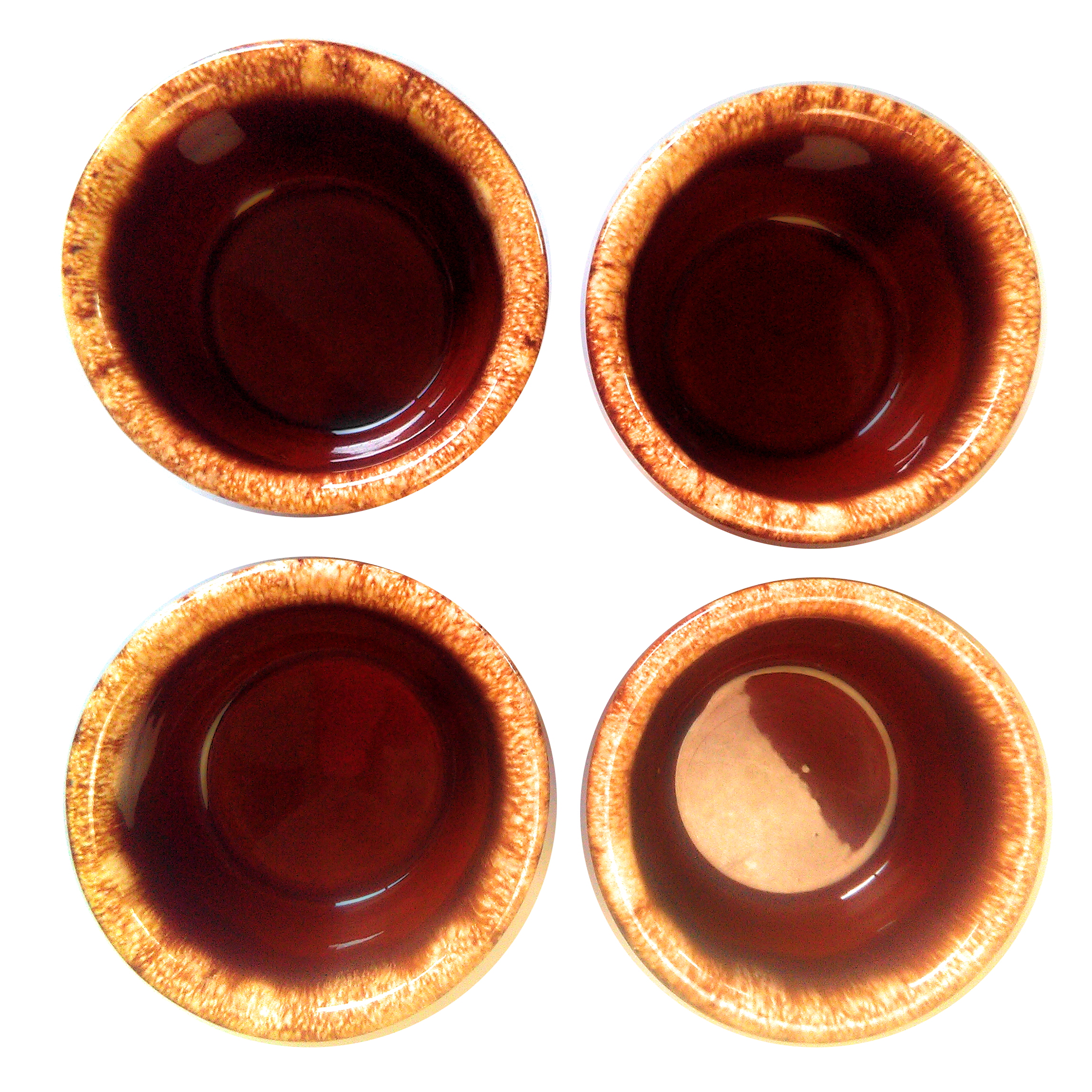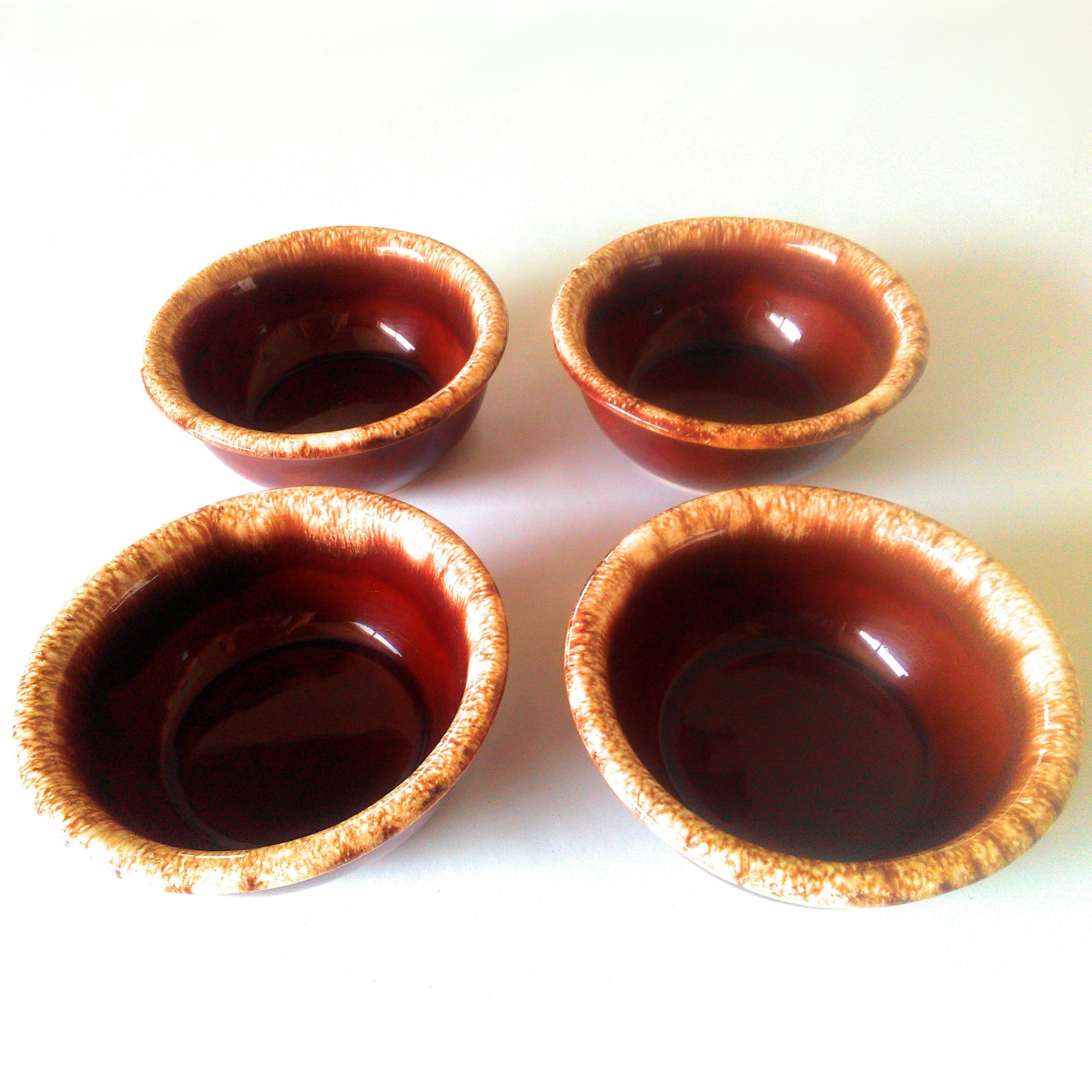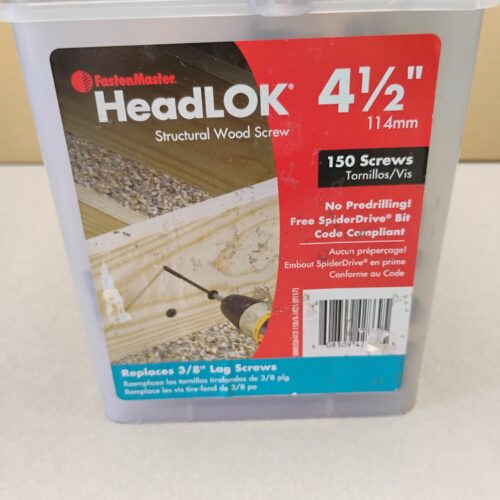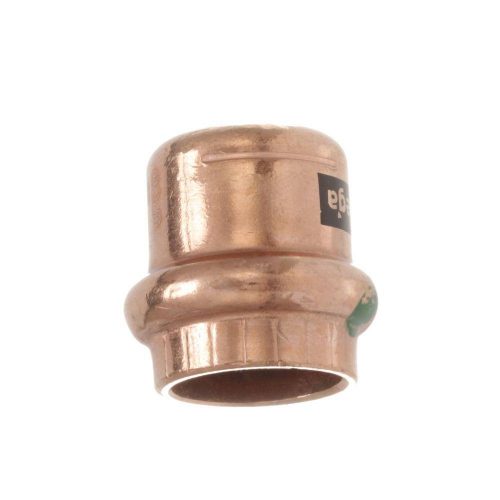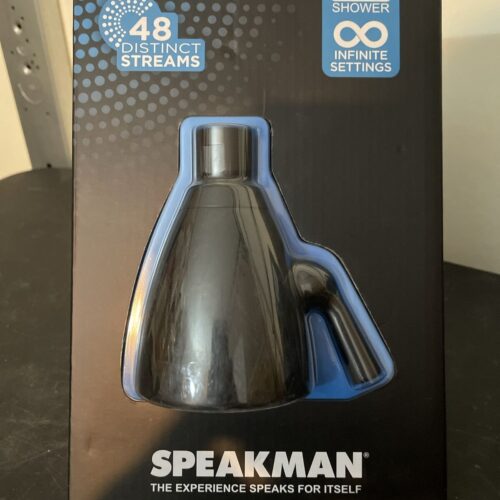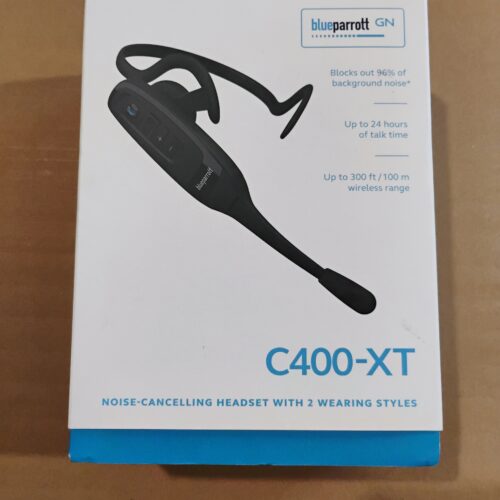Description
This is a vintage set of 4 beautiful Hull Brown Drip Fruit / Dessert / Sauce Bowls. Very nice brown color with a glossy appeal! Each bowl is approximately 5-1/4 inches wide and about 2-1/2 inches tall.
They are all in very good pre-owned condition with no cracks or crazing. One of the bowls shows a small chip on the rim that can hardly be seen. Other three pieces are in gently used condition, with minimal signs of previous use (some utensil wear marks mainly inside on the bottom).
The bowls look nice and would make a good addition to a set or collection.
Details
- Old Vintage Hull.
- Brown Drip pattern, discontinued (1960 ~ 1985).
- 4 fruit bowls Catalog #503.
- Made in the USA.
- Oven proof.
- Expected unique production features.
- Measures about 5-1/4″ diameter.
- Weights 12.3 Oz.
- Marked – Hull Oven Proof USA – on bottom.
- Gently used condition, minimal signs of use.
- Very nice lot!
About Hull Pottery
Hull pottery began production in 1905 in Crooksville, Ohio, under the leadership of Addis Emmet (A.E.) Hull (later succeeded by Ralph W. Hull). The Hull Pottery Company’s early lines consisted of common utilitarian stoneware, semi-porcelain dinnerware and decorative tile. The company quickly established a firm market and enjoyed an excellent reputation for producing quality ceramics.
On June 19, 1950, the plant was destroyed in a flood and resulting fire. Primarily because of Hull’s excellent reputation with its customers and buyers, the company was able to quickly rebuild and re-opened on January 1, 1952, as “The Hull Pottery Company.” J.B. Hull became General Manager. Through the 1950s and 1960s the company continued to expand and diversify its product lines to keep up with the times. New artistic lines such as Continental, Ebb Tide, Parchment and Pine, Tokay, and Tropicana were introduced. In the late 1960s through the mid-1980s, the company changed its production from artistic lines to predominately “House ‘n’ Garden” serving ware and Imperial florist ware. J.B. Hull died in 1978. Hull was succeeded as president by Henry Sulens and later Larry Taylor. In the mid-1980s the company was hit with multiple union strikes and foreign competition. In March, 1986 the company ceased operations and closed the plant.








